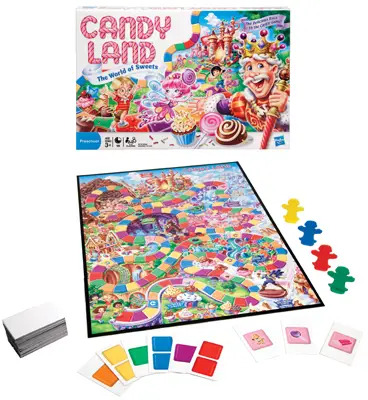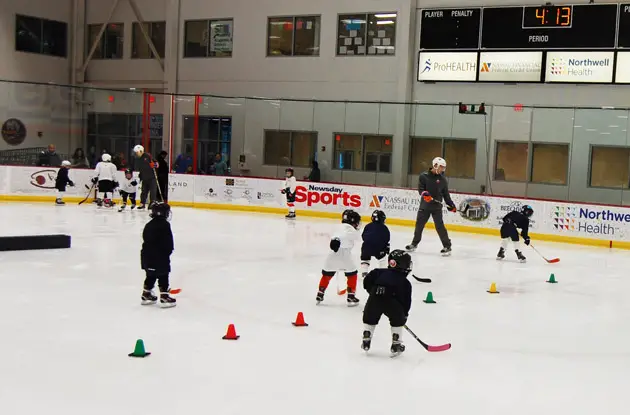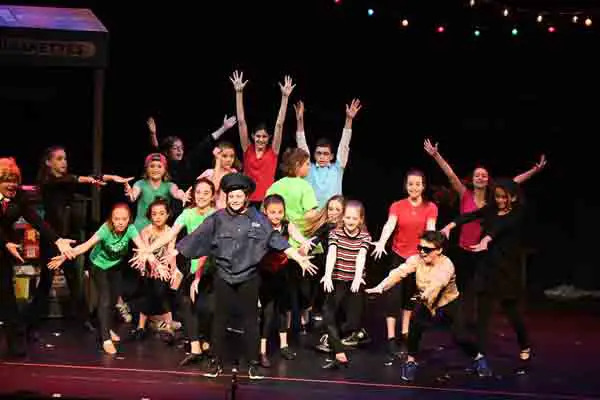Many of us recall our parents’ tired refrain, “It’s not whether you win or lose but how you play the game.” This is true, sure, but how do you actually put that into practice when you’re in the thick of endless rounds of checkers, Chutes & Ladders, or Zingo? What should your kids be learning at each stage of their early development? Should you let them win to boost their self esteem, or let them lose, so they can experience how the world really works? All of these are common questions when it comes to how to raise our little Garry Kasparovs or David Beckhams. Michele Borba, Ed.D., author of The Big Book of Parenting Solutions (Jossey-Bass Publishing) walks us through the different ages and stages of game playing. “The reason you let them win,” says Borba, “is so that you can teach them how to lose!”
Toddlers/Nursery School
Toddlers don’t understand win or lose yet, and the most common games that you’ll find in nursery school are Candyland and Chutes and Ladders. These are games of chance, so it’s random as to whether you’ll win or lose (short of stacking the decks in Candyland!).
What they should be learning: At this tender young age, your child is learning two basic things: how to share, and how to take turns. Losing and winning are not even on the agenda yet. The important thing is that they feel successful – they’re gaining a sense of independence by learning how to cooperate and take turns; these are the very building blocks of socialization. You don’t need to put any focus on “You won!” or “I won!” Just keep saying “Good job!” Don’t forget to give a high five or shake your child’s hand; these small gestures plant the first seeds of good sportsmanship.
Preschool
You’re moving into games of skill. Games like Balloon Lagoon and Don’t Spill the Beans help to develop processing, reaction times, and fine motor skill development, all while building on turn taking.
What they should be learning: Preschoolers are notorious poor losers; they have no concept of fairness yet. Their world is revolving around them, and at this stage that’s how it should be. It’s important now to place the focus during game playing on three things: stick to the rules; encourage your friends (you can model that by keeping up your own positive reinforcement); and finish what you started. If you don’t put the emphasis on the end product of winning or losing, they won’t either.
Kindergarten and Beyond
Once you get into checkers and chess, the stakes change – games of skill are taught, skills are sharpened, and competitiveness kicks in.
What they should be learning: Starting at 5 or 6 years old, the emphasis naturally switches for kids to what’s equitable: You have five, I have five. This marks a shift in their moral reasoning patterns. They’re still egocentric, of course, but they’re also assimilating other people’s emotions and responses. It’s important now to lay down the rules, and then model those for them. Two key points to develop now are: how to win gracefully and how to lose gracefully. Remember – this is the counting age, and they’re keeping score. Competiveness is kicking in, and it’s more important than ever to teach your children how to win and lose. Don’t go out of your way to let them win or lose. If they win, teach them grace by laughing it off and telling them how much fun it was to play. If they lose, teach them how to be a graceful winner.
Great Games for Each Stage
Chutes and Ladders
Kids love spinning the spinner and watching their parents go down the chute. Check out the cute retro edition (great birthday present).
Candyland
This colorful classic is a sure way to teach kids how to take a turn, and learn their colors to boot.
Preschool
“Bingo with a zing.” Matching skills set the stage for later games of sequencing, and it’s fun to call out “Zingo!” when your card gets filled up with various shoes, bugs, and smiling suns.
Balloon Lagoon
At nearly $50, this is a pricey game. But it’s heavenly for motor skills development. You flip frogs into a pond, go fishing with a magnetic fishing pole in “letter lake” (which encourages pre-reading skills), and roll handfuls of dice to match snacks at the “snack shack.”
Little fingers work very hard to pile beans into a bucket that threatens to spill them if they get off balance.
Kindergarten and Beyond
Don’t underestimate the Game of Kings – it’s more challenging than you might recall. Kids can cut their competitive teeth on this old favorite. King me!
Seems that kids learn this if their parents play… for some reason it’s harder for adults to learn than it is for wee ones. So if you enjoy the game, give it a whirl with your 5- or 6-year-old. Their brains are sponges and they’ll have you castling in fear in no time.
Also see: Ask the Experts: How to Raise Self-Confident Children
















